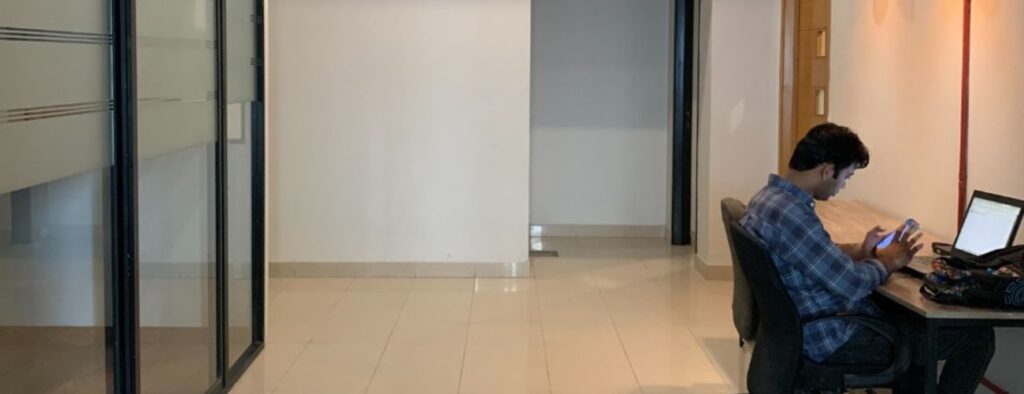Introduction:
In the past, offices were synonymous with cubicles, where interaction was limited to lunch breaks. Today, the corporate sector undergoes a significant transformation, steering towards modern coworking spaces. The shift is profound, impacting not just the physical setup but the very essence of work culture. This article dives into the evolution of coworking culture, exploring its influence on modern-day office spaces.

The rise of coworking culture: A timeline
The coworking culture emerged in the mid-2000s, gaining momentum alongside the surge in remote work. As people sought alternatives to working from home, the initial concept of coworking was simple: a desk in a coffee shop. Over time, these spaces evolved into dedicated rooms or entire floors within office buildings worldwide.
Changing dynamics: From cubicles to open spaces
The conventional office setup with cubicles is giving way to open floor plans in modern-day workspaces. This shift allows businesses to customize their areas, incorporating meeting rooms, private offices, and open spaces. The modern architecture includes glass walls, vibrant recreational areas, and custom lights, giving each workspace a distinct identity.
Elevating Workspace Aesthetics
The transition to modern office spaces involves upgrading furniture for both comfort and style. Conventional office chairs are replaced with L-shaped sofas in lounge areas, and adjustable standing desks become commonplace. The aim is to create a workspace that is not only functional but also aesthetically pleasing.
Open spaces: fostering collaboration
Unlike the confinement of traditional cubicles, modern offices emphasize open spaces. This openness allows employees the freedom to choose their working areas, fostering collaboration and building professional networks. The flexibility provided by coworking spaces stands in stark contrast to the rigid structures of conventional offices.
Recreational areas: Breaking the monotony
The advent of coworking brought about the introduction of recreational areas within the workplace. These spaces offer employees the chance to socialize and engage in activities like video games, Pictionary, or ping pong during breaks. Such areas serve as stress relievers, promoting a more relaxed work environment
Events and workshops: A social workspace
Coworking spaces differentiate themselves by regularly hosting events and workshops. These gatherings, including Friday happy hours, musical evenings, and business-related workshops, contribute to a vibrant and socially active workspace. This emphasis on socializing and skill development sets coworking culture apart from traditional office setups.
Security and safety: prioritizing employee well-being
In contrast to conventional offices with inadequate security measures, modern coworking spaces prioritize the safety of occupants. Biometric security systems, CCTV cameras, and attentive front desk attendants ensure a secure work environment, addressing concerns often overlooked in traditional setups.
Work Hall: A hub of productivity
Enter Work Hall, a prominent provider of coworking spaces in Karachi. With locations in KDA, PECHS, Metropole, Zamzama, Tipu Sultan, and Gulshan-e-Iqbal, Work Hall offers a diverse range of amenities. From WiFi and air conditioning to complimentary tea, meeting and conference rooms, private offices, and virtual offices, it caters to various professional needs.
Work Hall extends a 50% discount to women, recognizing the importance of inclusivity. It is a hub for established businesses, freelancers, and small businesses, providing flexible coworking plans to accommodate diverse professional requirements.
So visit www.workhall.co right now and to unlock a plethora of opportunities. Whether you are a freelancer or someone looking for a coworking space for small business, a private office or a virtual office, Work Hall has it all.
Conclusion:
In conclusion, the transformation brought about by coworking culture extends beyond physical spaces, reshaping the very fabric of corporate culture. The collaborative, flexible, and innovative nature of modern-day office setups epitomizes the progressive shift fueled by coworking spaces.
Work Hall, with its strategic locations and inclusive offerings, stands as a testament to the evolving landscape of the workplace. As we embrace this modern office revolution, coworking spaces like Work Hall pave the way for a more dynamic and collaborative future of work.
Leave a Reply